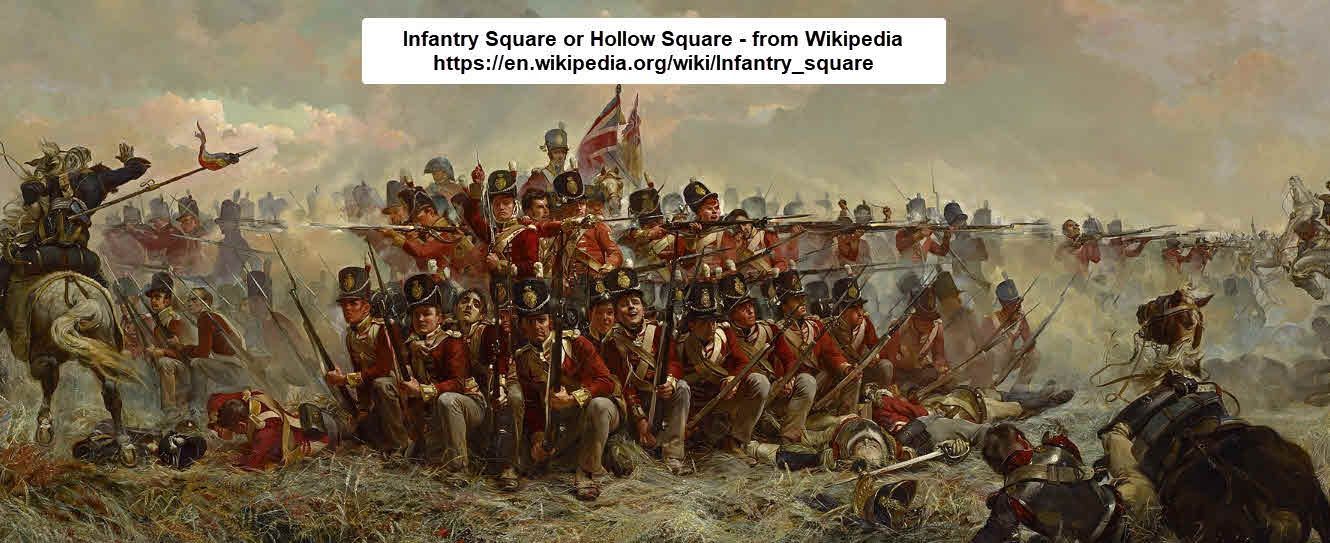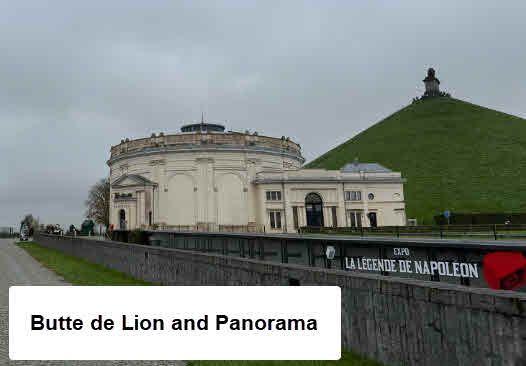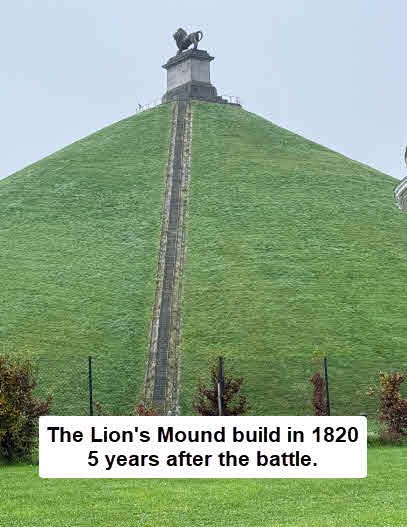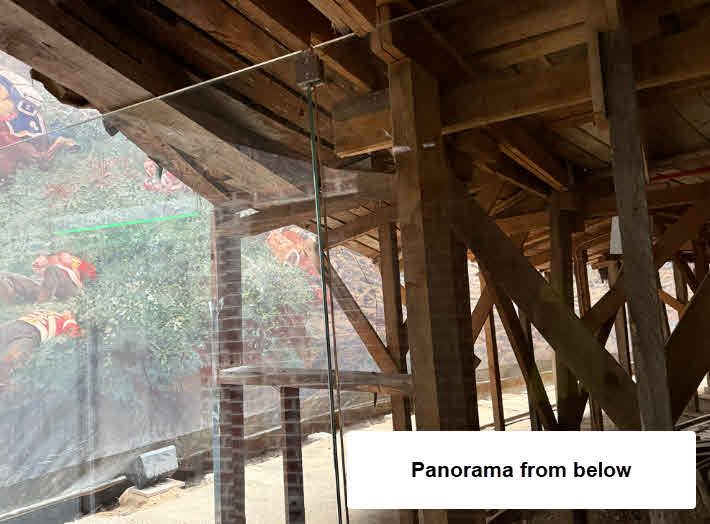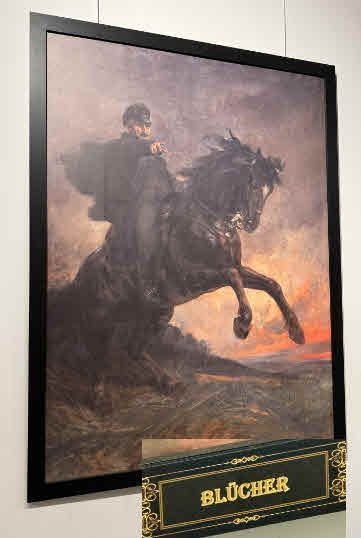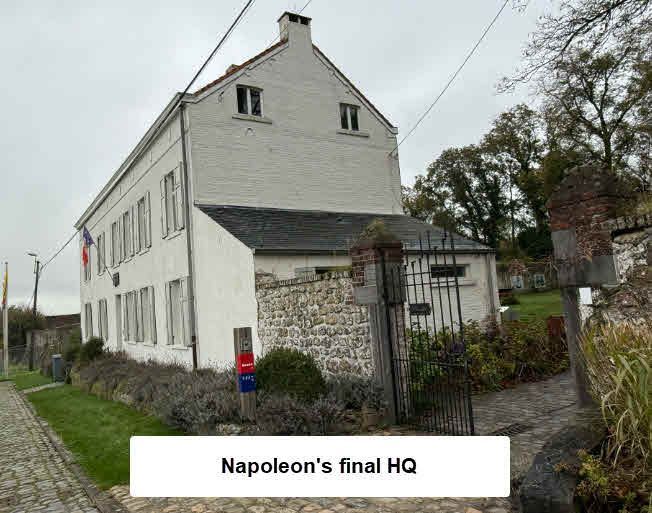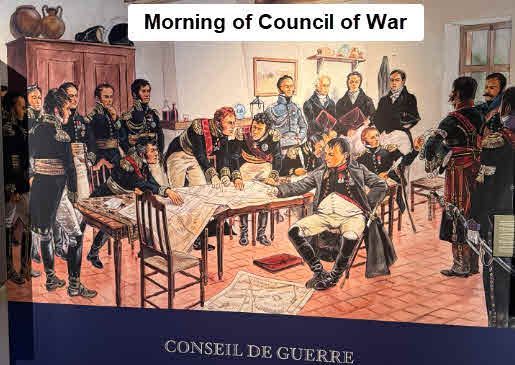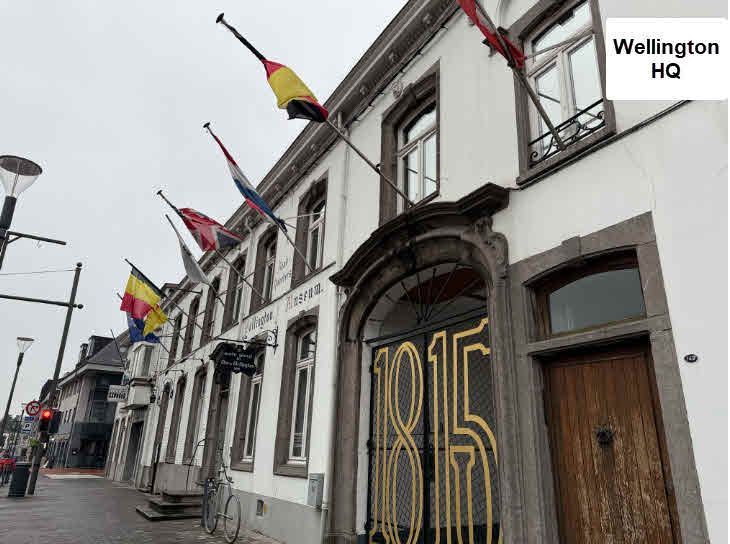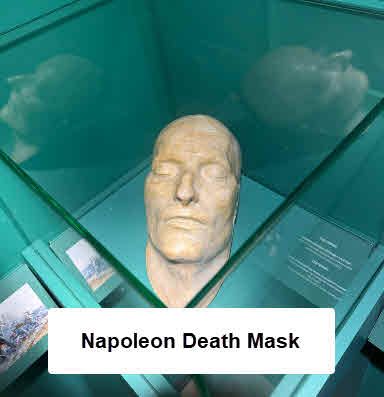Trip Day 8 - November 6th - Waterloo Day 2
I bought a 3-venue package deal - the main Domaine de la Bataille de Waterloo 1815 (the area of the battlefield), Napoleon's last headquarters, and Wellington's last headquarters.
In 1815 after returning from his first exile, Napoleon headed north into Belgium to destroy the allies facing him. He decided to split his troops because he was confident he could beat the wimpy British with a smaller force. One portion attacked the British and the other portion attacked the Prussians (this was before Germany was an empire). The Prussians retreated north while the British held their ground. The Brits had a unique method of defending against cavalry called the 4-square or infantry square. This fended off the French cavalry for a long time. Though the British eventually started pulling back, the Prussians under Blucher (Young Frankenstein reference - if you have NOT seen that movie, please watch it - it is hysterical!) who had gone around the French chasing them came to the British defense. Napoleon had to withdraw to deal with the flanking attack by the Prussians. The British, instead of retreating, attacked the French and Napoleon was caught in a vise. (The following is from ChatGpt when I asked why Napolean surrendered) Napoleon's army was in shambles, making it virtually impossible to conduct an organized retreat. The coalition forces were relentless, and even if he had escaped, there was little chance to regroup with fresh forces. Lack of support in France: with his political power eroded and support diminished, he no longer had the means to command or influence effectively. End ChatGpt. In addition, his troops were totally demoralized, soaking wet, and starving.
The Domaine of the Battlefield has the Lion's Mound (236 steps I did NOT climb) erected by King William of Belgium in 1820 and a big circular structure next to it called the Panorama of Waterloo built in 1920.
Afterwards, I headed to Napoleon's HQ. On the morning of the battle during planning, he was sure he would be able to beat the sissy English. It was just a one-night stay. On the other hand, his troops were hungry and soaking wet due to the relentless rain. The British troops were well fed, something Wellington insisted on.
Most interesting to me was Wellington's HQ building in the middle of the city of Waterloo. Wellington eventually became Prime Minister under Queen Victoria. The history there pretty much laid out the story above, but it also showed what kind of guy Wellington was. His aide-de-camp, Lieutenant-Colonel Sir Alexander Gordon, was wounded during the battle and laid dying in Wellington's camp bed in the next room while Wellington was writing a dispatch to the Queen. When his friend died, he openly wept and stated "Believe me, nothing except a battle lost can be half so melancholy as a battle won." Similar to this is his statement "There is nothing so dreadful as a great victory—except a great defeat."

